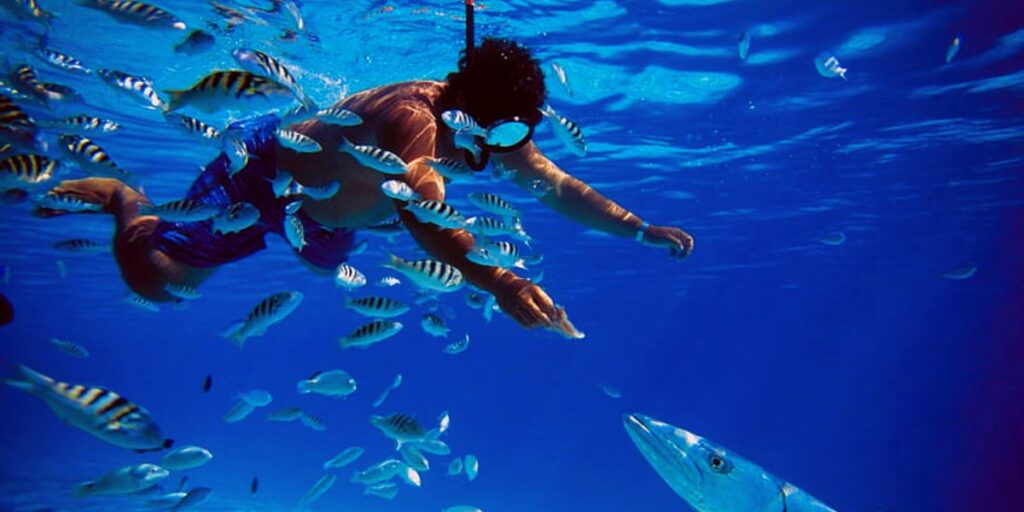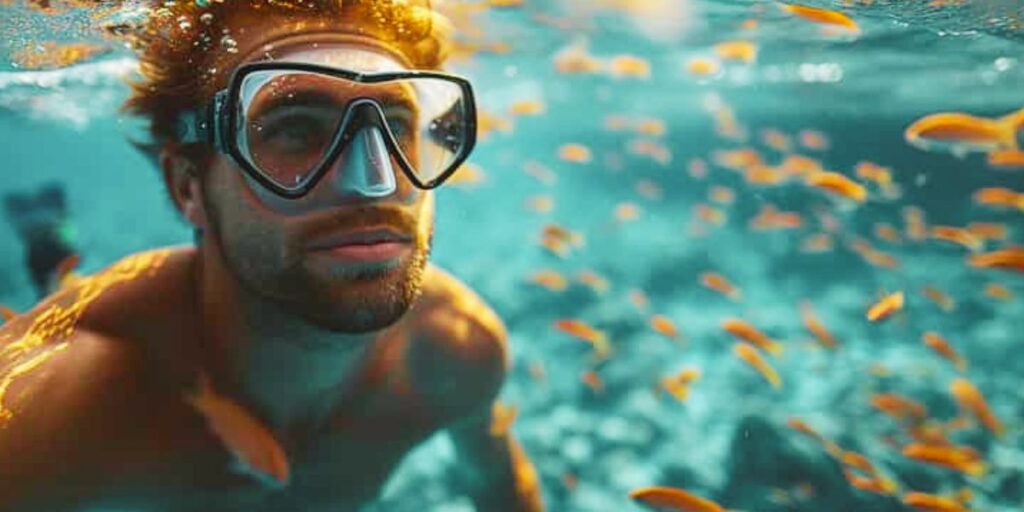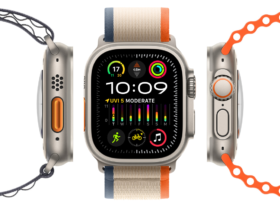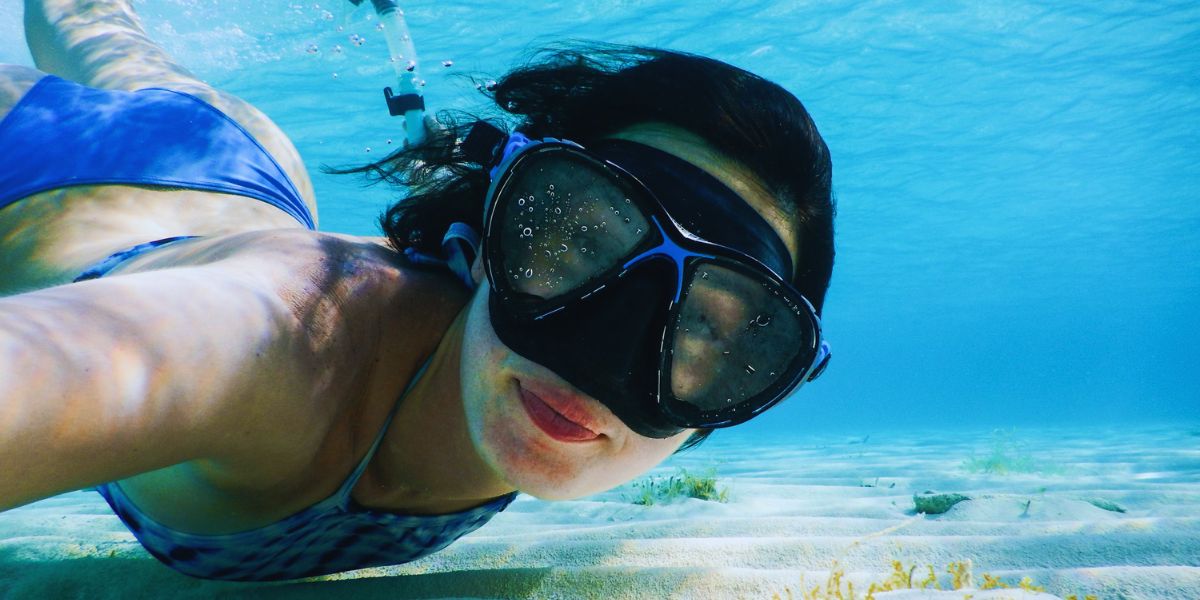Snorkeling is an exciting and accessible way to explore the underwater world, allowing you to witness marine life up close without the need for advanced scuba diving training. Whether you’re snorkeling in crystal-clear waters of tropical beaches or exploring hidden marine reserves, it’s essential to be prepared to ensure both your safety and enjoyment. If you’re planning to snorkel for the first time or want to refresh your knowledge, here are some crucial tips to remember before diving into the water.
1. Choose the Right Snorkeling Gear
One of the most important aspects of snorkeling is having the right equipment. Your snorkeling experience largely depends on the comfort and efficiency of your gear. Here’s what you should keep in mind:
- Mask: Your mask should fit your face snugly without being too tight. Make sure it creates a good seal to prevent water from leaking in. A common mistake is choosing a mask that is too loose or too tight, which can lead to discomfort and leaks.
- Snorkel: Choose a snorkel that has a comfortable mouthpiece and is easy to breathe through. Dry snorkels are a popular option as they prevent water from entering the tube, making it easier for beginners to focus on the experience rather than water management.
- Fins: Opt for fins that fit comfortably and are neither too tight nor too loose. Fins help you glide through the water with ease, reducing the effort required for swimming. If they are too tight, they can cause cramps, while loose fins can slip off.
- Optional Gear: Depending on the location and water temperature, you may want to wear a rash guard or wetsuit to protect your skin from sunburn or cold water. If you’re snorkeling in rocky areas, consider wearing water shoes to protect your feet from sharp coral or rocks.
2. Test Your Gear Before Entering the Water
Even with the right gear, it’s important to test everything before getting into the water. This step ensures your equipment fits well and is functioning properly, reducing the risk of any issues while you’re snorkeling.
- Check for Leaks: Before heading out to sea, put on your mask and snorkel and submerge your face in shallow water. Check for any leaks around the edges of your mask or issues with your snorkel.
- Adjust Fit: Make any necessary adjustments to your mask straps or fin sizes. A well-fitting mask and fins can make a huge difference in your overall comfort.
- Practice Breathing: Familiarize yourself with the breathing process. Try inhaling and exhaling through your snorkel while your face is submerged in shallow water. This helps you get comfortable with the experience before you head out into deeper waters.

3. Understand Basic Snorkeling Techniques
While snorkeling is relatively easy compared to other water sports, it’s still important to familiarize yourself with some basic techniques to enhance your experience and ensure your safety.
- Stay Relaxed: Relaxation is key when snorkeling. If you’re tense or panicking, it can make breathing difficult and lead to fatigue. Practice breathing deeply and calmly through your snorkel before you head out.
- Swim Slowly: There’s no need to rush. Move slowly and deliberately in the water. This not only conserves energy but also minimizes your chances of disturbing marine life or damaging coral reefs.
- Use Your Fins Efficiently: Your fins should be used to propel you forward with minimal effort. Kick from your hips, not your knees, and use smooth, controlled movements. This allows you to move efficiently and avoid unnecessary strain.
- Clearing Water from Your Snorkel: Water may sometimes enter your snorkel tube, especially if you’re using a traditional snorkel. To clear the water, blow a quick, sharp breath into the tube to force the water out.
4. Check the Weather and Water Conditions
Before heading out, it’s crucial to check both the weather and water conditions. Not only will this ensure your safety, but it will also determine how enjoyable your snorkeling experience will be.
- Tides and Currents: Strong tides or currents can make snorkeling difficult and even dangerous. Always choose a day when the water is calm, especially if you’re a beginner. If you’re unsure, consult with local experts or guides.
- Visibility: Clear water is essential for a good snorkeling experience. Check the visibility conditions in advance to ensure you’ll be able to see the underwater environment clearly.
- Weather: Avoid snorkeling during storms or if there’s a chance of rain. Rough weather can create choppy waters, reducing visibility and making swimming more challenging.
5. Stay Aware of Your Surroundings
While snorkeling, it’s easy to get caught up in the beauty of the underwater world, but it’s important to remain aware of your surroundings at all times.
- Know Your Boundaries: Always be aware of how far you’ve ventured from the shore or boat. It’s easy to get carried away while exploring, but make sure you don’t stray too far from your starting point.
- Look Out for Marine Life: Always be respectful of marine life. Do not touch or chase animals, as this can disturb them and potentially put you in danger. Some creatures, such as jellyfish or sea urchins, can cause painful stings or injuries.
- Watch for Boats: If you’re snorkeling in areas with boat traffic, make sure you’re aware of your surroundings above water as well. Use a brightly colored snorkel or wear a flag to make yourself more visible to boaters.
6. Stay Hydrated and Use Sun Protection
Spending time in the sun and saltwater can quickly dehydrate you. It’s essential to stay hydrated throughout the day to maintain energy and prevent fatigue.
- Drink Plenty of Water: Make sure to drink water before and after your snorkeling session. If you’re going to be out for an extended period, consider taking breaks to drink water in between swims.
- Use Waterproof Sunscreen: Apply waterproof sunscreen before entering the water to protect your skin from harmful UV rays. Remember that water reflects sunlight, so you’re exposed to even more sun when you’re snorkeling.
- Wear a Rash Guard or UV Protection Clothing: A rash guard can offer additional protection against the sun and reduce your reliance on sunscreen, which can wash off in the water and harm marine life.
7. Snorkel with a Buddy
Snorkeling with a buddy is always recommended, even if you’re an experienced swimmer. Having someone with you ensures that there’s help available in case of any unexpected issues.
- Safety in Numbers: Snorkeling in pairs or groups reduces the risk of accidents and allows you to look out for each other. If one of you gets tired or encounters difficulty, the other can offer assistance.
- Shared Experience: Snorkeling with a buddy also enhances the overall experience. Sharing the sights of vibrant coral reefs or exotic fish with a friend or family member can make your adventure more memorable.

8. Respect the Marine Environment
While enjoying the beauty of the ocean, it’s important to keep in mind that the marine environment is fragile. Always follow eco-friendly snorkeling practices to minimize your impact on the underwater ecosystem.
- Don’t Touch Coral: Coral reefs are delicate and can be easily damaged. Even a gentle touch can harm them, so it’s best to admire from a distance.
- Don’t Feed Fish: Feeding fish can disrupt their natural behavior and diet. Stick to observing marine life without interfering with their natural habitat.
- Take Your Trash: Make sure to collect and properly dispose of any trash you may have brought with you. Leaving trash behind can harm marine life and the environment.
Conclusion
Snorkeling is an incredible way to explore the ocean, offering a unique glimpse into the underwater world. However, preparation and mindfulness are key to ensuring both your safety and the protection of marine ecosystems. By following these tips, you can make the most of your snorkeling adventure and come away with unforgettable memories while keeping the ocean safe for future explorers.


















Leave a Reply